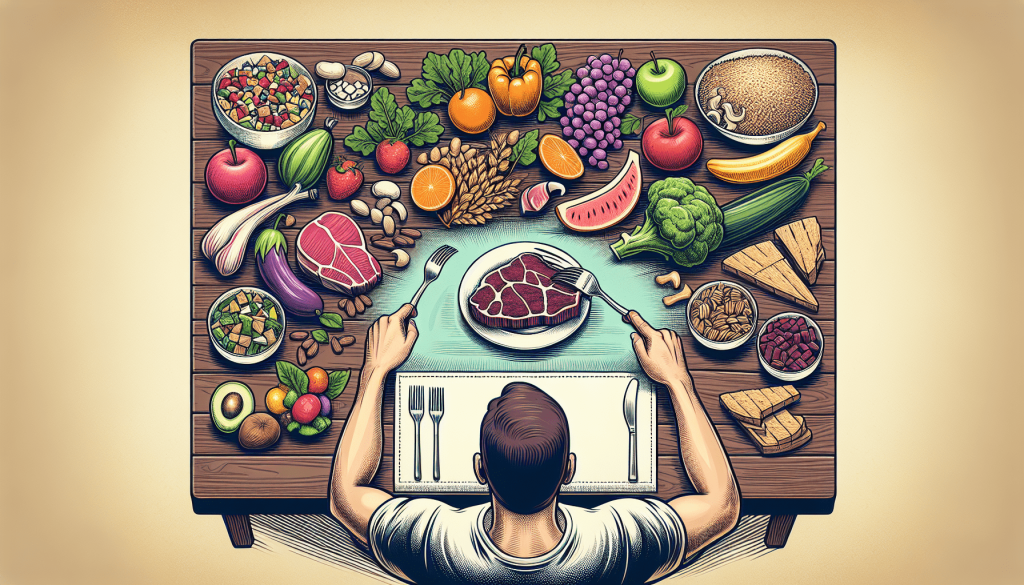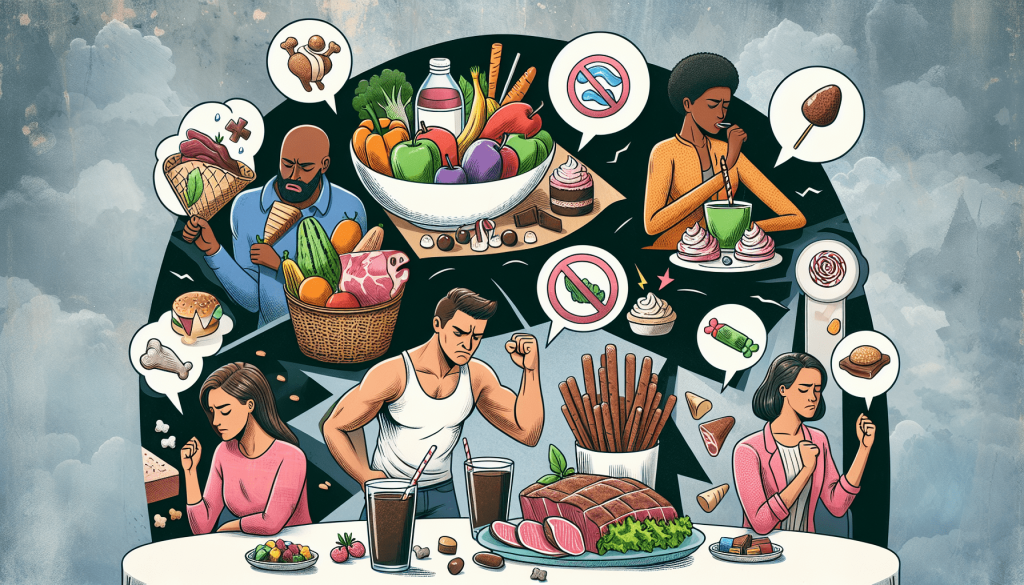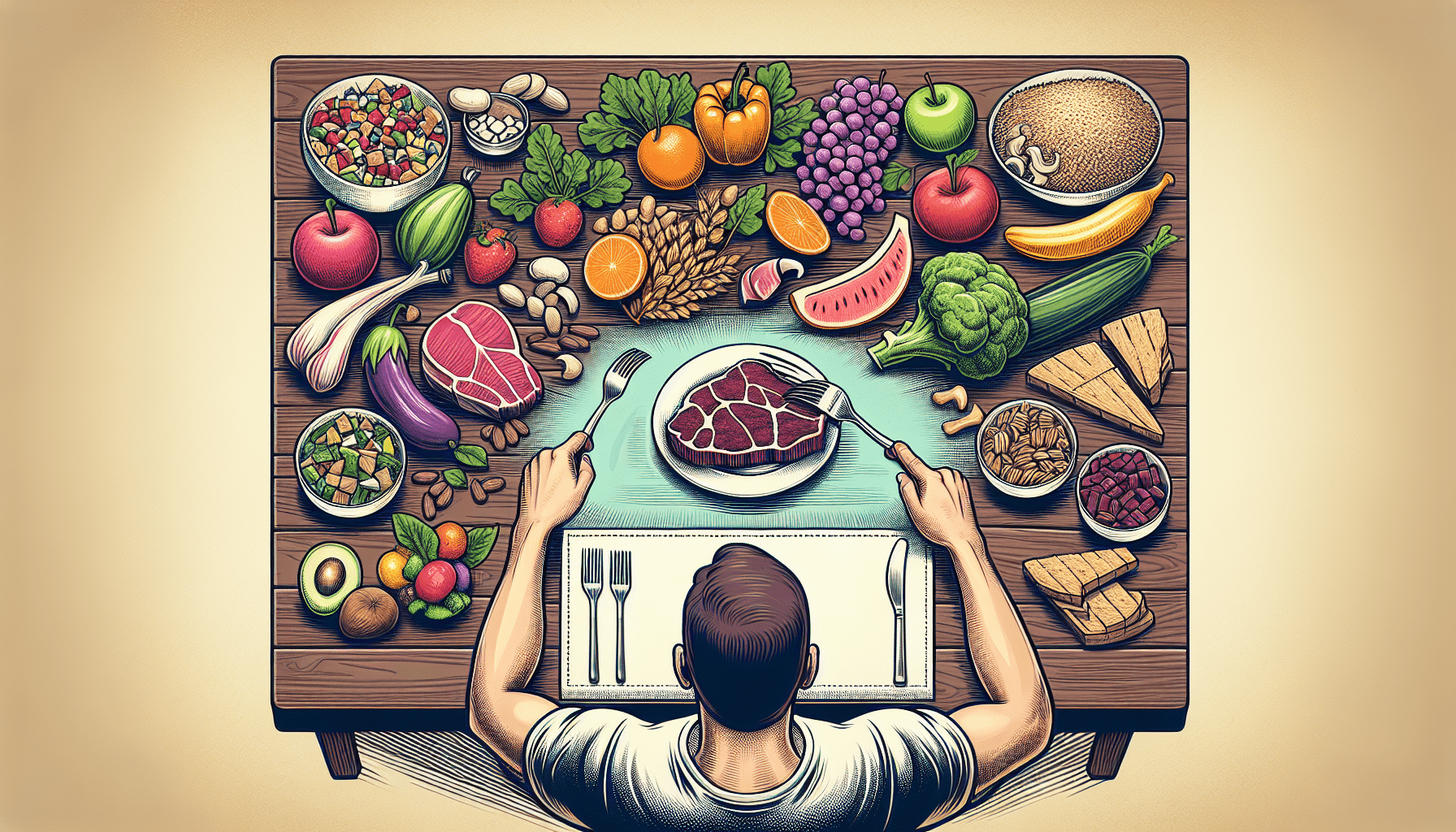Are you following the Carnivore Diet but find yourself struggling with cravings for non-carnivorous foods? Look no further! In this article, we will explore some effective strategies that can help you overcome those pesky cravings and stay on track with your strict carnivorous lifestyle. Say goodbye to temptation and hello to success on the Carnivore Diet!
Understanding Cravings on the Carnivore Diet
The Nature of Cravings
Cravings are an intriguing aspect of our relationship with food. They are fierce desires for specific foods that can be challenging to ignore. One common misconception about cravings is that they are solely driven by hunger. However, cravings can arise for a variety of reasons, including emotional triggers, nutrient deficiencies, and physiological responses to certain foods.
Cravings on the Carnivore Diet
The Carnivore Diet, which primarily consists of animal products, may seem restrictive to some. Individuals following this diet often wonder how to manage cravings effectively while still adhering to its principles. Understanding the dynamics of cravings on the Carnivore Diet can provide valuable insights into managing them appropriately and ensuring nutritional adequacy.
Addressing Nutrient Deficiencies
Identifying Common Nutrient Deficiencies on the Carnivore Diet
The Carnivore Diet can be nutritionally balanced when followed properly. However, it is essential to be aware of potential nutrient deficiencies that may arise. Common nutrients that may be lacking in a Carnivore Diet include fiber, vitamin C, vitamin D, calcium, magnesium, and potassium. Being mindful of these potential deficiencies can help in designing a well-rounded and nutritionally complete diet.
Supplementing with Essential Nutrients
Supplements can play a crucial role in addressing nutrient deficiencies on the Carnivore Diet. While the diet primarily focuses on animal-based foods, incorporating additional sources of essential nutrients can help alleviate any deficiencies. Supplements such as vitamin C, vitamin D, and electrolytes can ensure you meet your nutritional needs and reduce the likelihood of cravings tied to nutrient imbalances.

Staying Satiated with Protein and Fat
Importance of Protein and Fat
Protein and fat are the cornerstones of the Carnivore Diet. These macronutrients provide essential building blocks for the body and help maintain satiety. Protein is particularly vital, as it supports muscle growth and repair, boosts metabolic health, and enhances feelings of fullness. Fat, on the other hand, provides a concentrated source of energy and aids in the absorption of fat-soluble vitamins.
Optimizing Protein Intake
Protein requirements may vary based on factors such as age, gender, activity level, and goals. Ensuring an adequate protein intake is crucial for preventing cravings and maintaining muscle mass. High-quality animal proteins like beef, poultry, fish, and eggs are excellent sources for meeting your protein needs on the Carnivore Diet. Aim for a mix of both lean and fattier cuts to enjoy the benefits of different amino acid profiles.
Choosing the Right Fats
Including a variety of healthy fats in your diet is essential for optimal health and satiety on the Carnivore Diet. Fats from sources like grass-fed meat, wild-caught fish, pastured eggs, butter, and ghee provide valuable nutrients and contribute to feelings of fullness. Experimenting with different types of fats can help add variety to your meals while ensuring you are getting the necessary fat-soluble vitamins.
Balancing Electrolytes and Hydration
Understanding Electrolyte Imbalances
Electrolytes are minerals that play a crucial role in maintaining fluid balance, nerve function, muscle function, and overall hydration. On the Carnivore Diet, there is a potential risk of electrolyte imbalances due to the absence of certain plant-based foods that are rich in electrolytes like potassium and magnesium. Imbalances can lead to symptoms such as muscle cramps, fatigue, and headaches.
Maintaining Proper Hydration
Staying properly hydrated is vital for overall health and well-being, regardless of the dietary approach followed. Adequate fluid intake ensures the efficient functioning of various bodily systems and helps transport essential nutrients. While water is the primary source of hydration, incorporating electrolytes can aid in maintaining balance and preventing electrolyte imbalances. Choose natural sources of electrolytes or consider electrolyte supplements to support optimal hydration.

Combatting Psychological Cravings
Understanding Psychological Cravings
Psychological cravings can be triggered by emotions, habits, or external cues, rather than actual physiological hunger. These cravings often stem from the desire for comfort, stress relief, or association with certain foods. Recognizing and understanding these cravings is crucial in formulating effective strategies to manage them without derailing your Carnivore Diet journey.
Developing Healthy Coping Mechanisms
Developing healthy coping mechanisms can help combat psychological cravings on the Carnivore Diet. Engaging in activities such as exercise, meditation, or practicing mindfulness can divert attention from cravings and provide alternative ways to manage stress or emotions. Finding enjoyable hobbies or incorporating relaxation techniques into your daily routine can also promote a positive mindset and reduce the likelihood of succumbing to psychological cravings.
Creating a Supportive Environment
Creating a supportive environment is essential when tackling psychological cravings on the Carnivore Diet. Surrounding yourself with like-minded individuals who understand and respect your dietary choices can make a significant difference. Additionally, ensuring your home is filled with Carnivore Diet-approved foods eliminates the temptation of non-compliant items, ultimately reducing the intensity of psychological cravings.
Managing Hunger Pangs and Meal Frequency
Exploring Hunger Signals on the Carnivore Diet
Hunger signals are the body’s way of communicating its need for nourishment. On the Carnivore Diet, the absence of carbohydrates and fiber can result in different hunger patterns compared to a standard diet. Many individuals report feeling more satiated and experiencing fewer hunger pangs on a Carnivore Diet due to the satiating effects of protein and fat.
Strategies for Managing Hunger Pangs
To manage hunger pangs on the Carnivore Diet effectively, it is crucial to prioritize nutrient-dense meals that contain an adequate amount of protein and healthy fats. Including a variety of animal-based foods can provide satiety while meeting nutritional requirements. Experimenting with different meal sizes and compositions can help identify the hunger patterns that work best for your body.
Optimal Meal Frequency on the Carnivore Diet
Meal frequency is a personal choice that can vary depending on individual preferences and goals. Some individuals on the Carnivore Diet prefer fewer, larger meals to maintain satiety throughout the day, while others may find smaller, more frequent meals better suited to their needs. Understanding your body’s response to meal frequency can aid in managing hunger effectively and preventing unnecessary cravings.
Experimenting with Intermittent Fasting
Introduction to Intermittent Fasting
Intermittent fasting is a dietary approach that involves alternating periods of eating and fasting. It has gained popularity due to its potential health benefits, including improved insulin sensitivity, enhanced fat burning, and increased growth hormone levels. Incorporating intermittent fasting on the Carnivore Diet can further optimize metabolic function and aid in managing cravings.
Benefits of Intermittent Fasting on the Carnivore Diet
Intermittent fasting can provide a range of benefits when combined with the Carnivore Diet. By restricting the feeding window, intermittent fasting promotes greater satiety during meals and a reduced likelihood of cravings. Additionally, it can enhance the body’s ability to tap into stored fat for energy, making it an effective strategy for those seeking weight loss on the Carnivore Diet.
Finding the Right Fasting Protocol
Finding the right fasting protocol for your lifestyle and goals is crucial when incorporating intermittent fasting on the Carnivore Diet. Popular methods include the 16:8 method (fasting for 16 hours and consuming all meals within an 8-hour window) or the alternate-day fasting approach. Experimenting with different fasting protocols allows you to determine what feels sustainable and effective for your body.
Incorporating Variety in Food Choices
Expanding Food Options on the Carnivore Diet
While the Carnivore Diet primarily focuses on animal products, there are still various ways to incorporate variety into your meals. Exploring different cuts of meat, including organ meats, and trying a range of seafood options can add excitement to your plate. Additionally, experimenting with different cooking methods, herbs, spices, and condiments can elevate the flavors of your Carnivore Diet meals.
Creative Ways to Add Variety in a Carnivore Diet
To add even more variety to your Carnivore Diet, consider incorporating foods that are considered “seasoning” as a way to diversify your palate. These include ingredients like low-carbohydrate hot sauces, mustard, vinegar, or small amounts of herbs and spices. While it is important to choose options that align with the Carnivore Diet principles, incorporating these seasonings can make mealtimes more enjoyable and prevent flavor monotony.
Dealing with Social Pressures and Cravings
Navigating Social Situations
Social situations often involve an abundance of food choices that may not align with the Carnivore Diet. Navigating these situations can be challenging, especially when faced with cravings triggered by the sight or smell of non-compliant foods. Communication and planning ahead are key when managing social pressures. Clearly expressing your dietary choices to friends and family can help avoid unwanted temptations and create a supportive and understanding environment.
Coping with Social Cravings
Social cravings can often arise as a result of external factors rather than internal physical hunger. Being mindful of these cravings can empower you to develop effective coping strategies. Prioritizing the social aspect of gatherings, focusing on engaging conversations, and bringing your own Carnivore Diet-friendly dishes can help you stay on track while still enjoying the company of others.
Seeking Professional Guidance
Consulting with a Nutritionist or Dietitian
Seeking professional guidance from a qualified nutritionist or dietitian can provide invaluable support on your Carnivore Diet journey. These professionals can help you create a personalized and sustainable meal plan that addresses your specific nutritional needs, while also guiding you in managing cravings and maintaining optimal health. Consulting with a professional can offer reassurance and ensure that you are following the Carnivore Diet appropriately.
Working with a Supportive Healthcare Provider
In addition to nutritionists and dietitians, your healthcare provider can play a significant role in supporting your Carnivore Diet journey. They can monitor your overall health, conduct relevant blood tests to identify potential deficiencies, and provide guidance on managing any health conditions you may have. A supportive healthcare provider can collaborate with you to develop a comprehensive plan that aligns with your preferences while ensuring your well-being.
By understanding the nature of cravings on the Carnivore Diet and implementing effective strategies, you can successfully navigate through any challenges and enjoy the benefits of this unique dietary approach. Remember, no matter how tempting cravings may be, you have the power to overcome them and create a fulfilling and nutritionally balanced Carnivore Diet experience.
